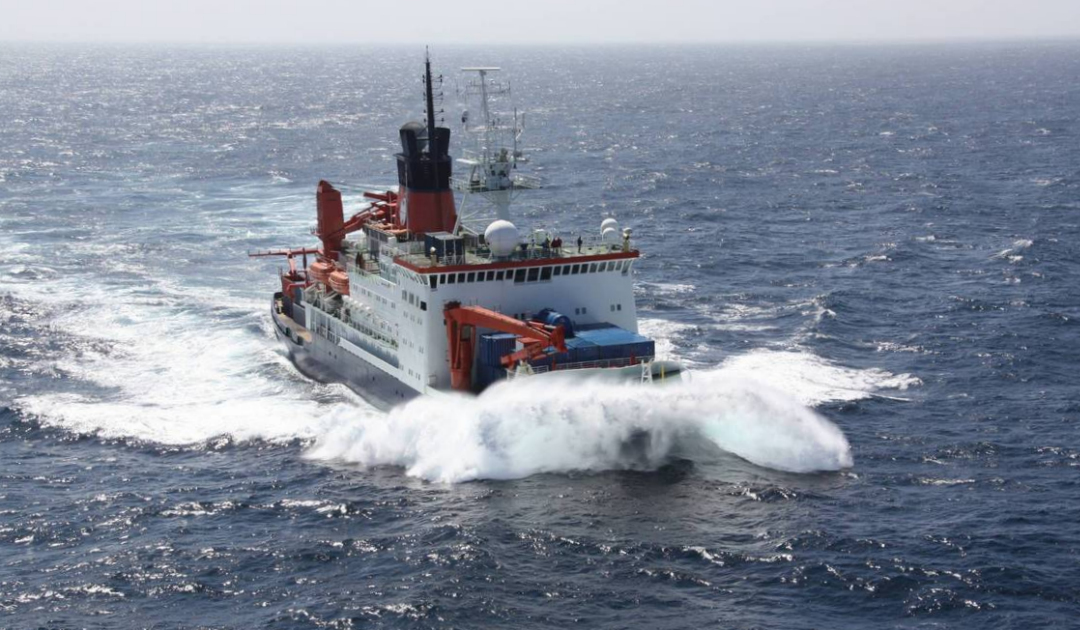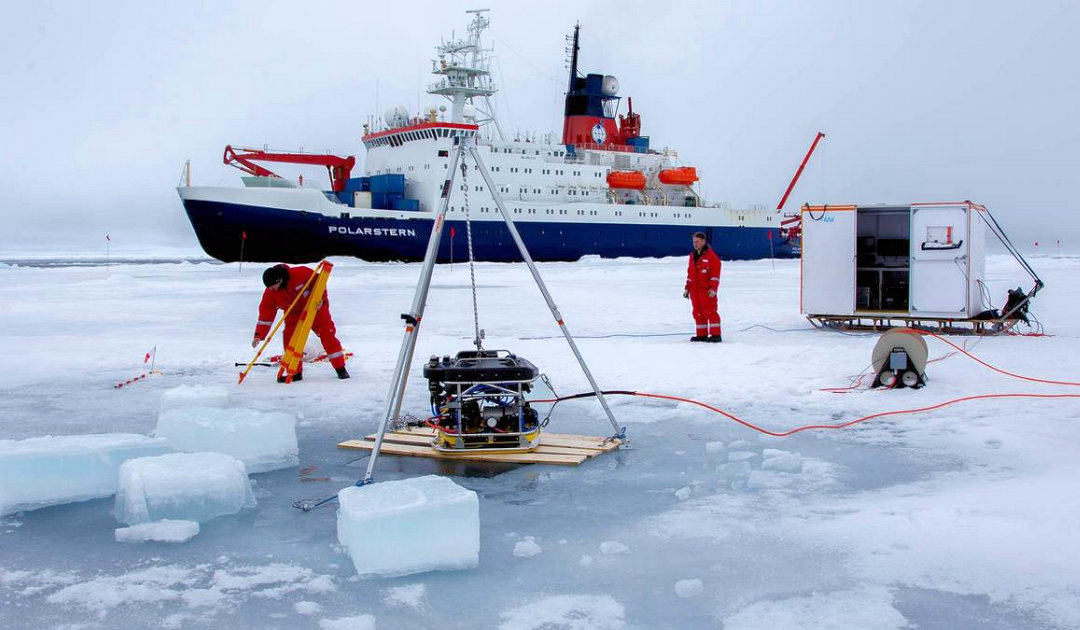
For more than 40 years, Germany’s best-known research vessel, the icebreaker “Polarstern”, has been reliably and faithfully performing its service in the Arctic and Antarctic. But now the lifetime of the blue and white research icebreaker is slowly coming to an end. For more than ten years, the Alfred Wegener Institute for Marine and Polar Research AWI has had plans to build a successor. These plans now can finally be turned into reality.
Last Friday, June 3, shortly before Whitsun, the German Bundestag officially approved the 2022 budget and with it the additional 2 million euros for the contract award procedure for the construction of the new research icebreaker. The German Federal Ministry of Education and Research BMBF has now officially commissioned the AWI through its approval to begin the tendering process for the new research icebreaker. The new ship will thus become a reality and should be ready by 2027 to continue to provide the highest level of German polar research, which is an essential part of international efforts to understand the Arctic and Antarctic.

For the AWI, this decision fulfills a long-cherished dream and is intended to further advance German polar research. “The goal of the new project is crystal clear: we want to construct a research ship that, just like its predecessor, offers a basis for the international research community and allows us to take the pulse of our planet, even in its most extreme regions,” AWI Director Professor Antje Boetius explained in a press release. “In this regard, for Germany the new ship represents an important international contribution to the UN Decade of Ocean Science for Sustainable Development, so as to achieve the global sustainability targets defined in the UN’s Agenda 2030. Moreover, by using cutting-edge systems and climate-friendlier propulsion, the new Polarstern will serve as a role model for sustainability in shipping.”
German politicians have also recognized how important the construction of a new and promising research platform is for Germany. BMBF Minister Bettina Stark-Witzinger says: “The polar regions are an early-warning system for the impacts of climate change and offer us invaluable glimpses into the future of our climate and weather. Consequently, gaining a better understanding of the processes at work at the Earth’s poles is of existential importance. After all, excellent climate research is the basis for better climate protection. As a high-performance, sustainable research vessel, the “Polarstern II” will make an important contribution in this regard.”


With the decision that the tender process for construction can now begin, AWI has also announced more information about the new research icebreaker. For example, the ship is expected to deliver even higher icebreaking performance than before, have overwintering capabilities, be equipped with a “moonpool” (a protected area in the hull for use by diving robots), and be designed to operate for at least 30 years. “We need a ship that can operate under all ice conditions in the Arctic and Antarctic, and which will allow researchers to gather observations and data from those regions hardest hit by climate change,” says Professor Antje Boetius in response.

The ship is also expected to set new standards in German research in terms of sustainability. Emissions from nitrogen oxide and soot particles are to be reduced to a minimum through the installation of exhaust aftertreatment equipment and particle filters, environmentally friendly and sustainable materials are to be used for construction, and energy-efficient, safe and reliable operation is to be ensured. A project group of the AWI under the leadership of engineer Detlef Wilde has been commissioned with the coordination of the construction management. “Our goal is to surpass those standards and, with the “Polarstern II”, to give the scientific community a modern, high-performance and sustainable ship that will be a more than worthy successor,” the engineer says of the new ship. The contract will be put out to tender throughout Europe. “Following the competitive bidding, the top candidates will be requested to submit an offer. Once the procurement procedure is completed and the winning bid has been selected by the AWI’s procurement office, construction is slated to commence at the winning shipyard in early 2023.” According to AWI’s plans, the start of operations should be in 2027. Until then, the good old “Polarstern” will continue to plow the vastness of the Arctic and Southern Oceans in search of polar information.
Contributed image: (C) Mario Hoppmann
Dr Michael Wenger, PolarJournal
More on the topic





